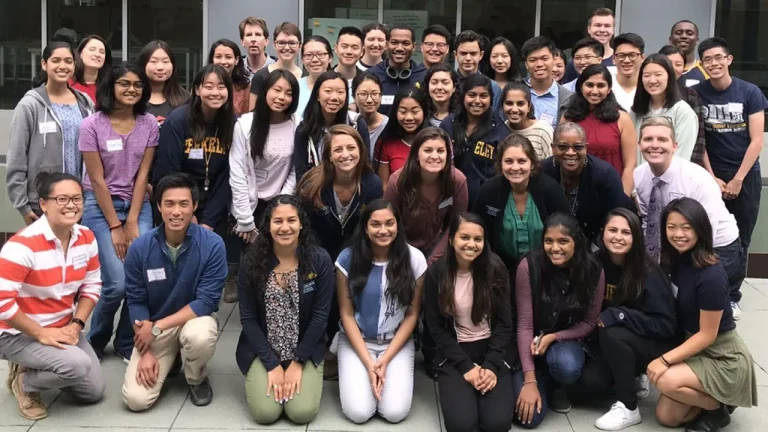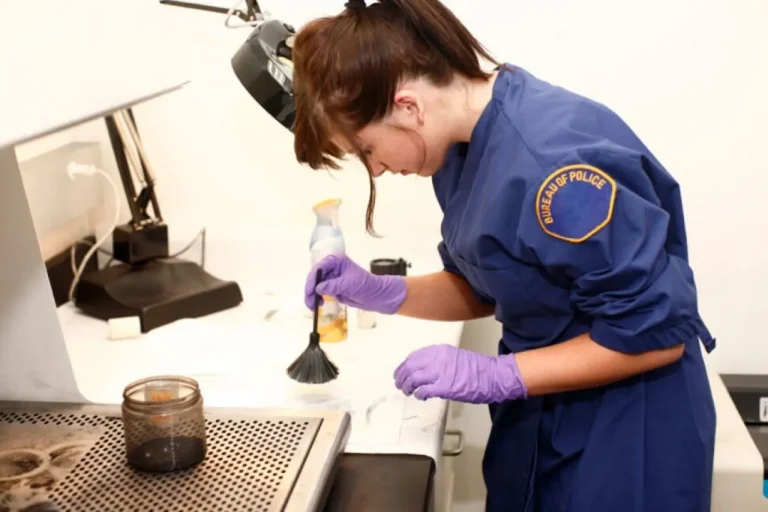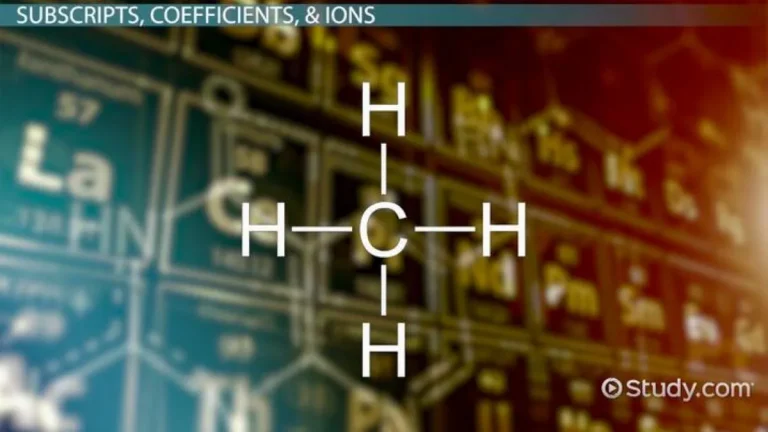Science In Everyday Life: 50 Examples Showing How Science Impacts Our Daily Activities
Science plays a vital role in our daily lives, even if we don’t always realize it. From the alarm that wakes us up to the phones we scroll through before bed, advancements in science, technology, engineering, and math touch every aspect of our routines.
If you’re short on time, here’s a quick answer on examples of science in daily life: Science gives us technology like smartphones, WiFi, microwaves, and virtual assistants. It brings us medical treatments, weather forecasts, and green energy solutions.
Fields like chemistry, biology, and physics explain the world around us and advancements that enhance how we live.
This comprehensive guide provides over 50 examples demonstrating the many amazing ways science impacts our lives. We’ll cover common technologies, healthcare innovations, environmental applications, and insights science provides into the world around us.
Read on to gain appreciation for just how integral STEM is to our modern lives.
Technology Innovations from Science
Smartphones and WiFi
Smartphones have become an integral part of our lives, and we can thank science for their existence. These devices combine various technologies, such as wireless communication, touchscreen displays, and powerful processors, all made possible through scientific advancements.
With the advent of WiFi technology, we can now connect our smartphones to the internet seamlessly, allowing us to access information, communicate with others, and stay connected wherever we go. According to a report by Statista, there are over 3.8 billion smartphone users worldwide, highlighting the widespread impact of this technology.
Virtual Assistants and AI
Virtual assistants, like Siri, Alexa, and Google Assistant, have become an integral part of our daily lives. These AI-powered technologies are the result of extensive research and development in the field of artificial intelligence.
They can perform a wide range of tasks, from answering questions and setting reminders to controlling smart home devices. Virtual assistants have revolutionized the way we interact with technology and have made our lives more convenient.
According to a study by Pew Research Center, around 46% of Americans use voice assistants, showcasing the widespread adoption of this technology.
Streaming Entertainment
Gone are the days when we had to wait for our favorite TV shows or movies to air on traditional television networks. Thanks to scientific advancements, we now have streaming platforms like Netflix, Hulu, and Amazon Prime Video that allow us to enjoy a vast library of entertainment content on demand.
Streaming services rely on technologies like high-speed internet connections and video compression algorithms, which have made it possible to deliver high-quality content to our devices. According to a report by Conviva, global streaming hours increased by 57% in 2020, highlighting the growing popularity of streaming entertainment.
Kitchen Appliances
Science has also revolutionized our kitchens with innovative appliances that make cooking and food preparation easier and more efficient. From microwave ovens and induction cooktops to smart refrigerators and programmable coffee makers, these appliances utilize scientific principles to enhance our culinary experiences.
For example, microwave ovens use electromagnetic waves to heat food quickly, while induction cooktops use magnetic fields to generate heat directly in the cookware. These advancements have saved us time and energy in the kitchen, allowing us to focus on creating delicious meals.
Healthcare and Medicine
Medical Treatments and Drugs
Science plays a crucial role in the development of medical treatments and drugs. Through extensive research and experimentation, scientists are able to discover new medications and therapies that help treat diseases and improve the quality of life for patients.
From antibiotics to cancer-fighting drugs, science has revolutionized the field of medicine. For instance, in recent years, breakthroughs in immunotherapy have provided hope for patients with previously untreatable cancers, offering them a chance at a longer and healthier life.
Medical Imaging and Scans
The advancement of medical imaging technology has greatly contributed to the field of healthcare. X-rays, CT scans, MRIs, and ultrasounds are all examples of medical imaging techniques that allow doctors to visualize the internal structures of the body without invasive procedures.
These imaging tools aid in the diagnosis and monitoring of various conditions, such as broken bones, tumors, and organ abnormalities. With the help of these technologies, doctors can make more accurate and timely diagnoses, leading to better treatment outcomes for patients.
Prosthetics and Implants
Science has also revolutionized the field of prosthetics and implants, providing individuals with enhanced mobility and improved quality of life. With advancements in materials science and robotics, prosthetic limbs have become increasingly sophisticated, allowing amputees to regain functionality and perform daily activities with greater ease.
Additionally, advancements in medical implants, such as pacemakers and artificial joints, have significantly improved the lives of individuals with chronic conditions, enabling them to live longer and more fulfilling lives.
Genetic Testing
Genetic testing is another area where science has had a significant impact on healthcare. With advancements in DNA sequencing technology, scientists are now able to analyze an individual’s genetic makeup and identify potential genetic disorders or predispositions to certain diseases.
This information can be used for early detection and prevention, allowing individuals to make informed decisions about their health. Genetic testing has also paved the way for personalized medicine, where treatments can be tailored to an individual’s specific genetic profile, leading to more effective and targeted therapies.
Energy and Environment
Renewable Energy
Renewable energy plays a crucial role in reducing our carbon footprint and preserving the environment. Solar power, for example, harnesses the energy from the sun and converts it into electricity, providing a sustainable and clean alternative to traditional fossil fuels.
Wind power is another example, where the kinetic energy of the wind is converted into electricity through wind turbines. According to the International Renewable Energy Agency (IRENA), renewable energy accounted for 26% of global electricity generation in 2018, and this number is expected to rise significantly in the coming years.
Harnessing the power of renewable energy sources not only reduces greenhouse gas emissions but also leads to economic growth and job creation in the renewable energy sector.
Water Filtration and Conservation
Science has greatly contributed to improving water filtration systems and promoting water conservation. Advanced technologies such as reverse osmosis and ultraviolet (UV) disinfection are used to remove impurities and pathogens from water, making it safe for consumption.
These filtration systems are essential in areas where access to clean drinking water is limited. Additionally, scientific research has led to the development of water-saving devices and techniques, such as low-flow showerheads and rainwater harvesting systems.
These innovations help conserve water resources and reduce water wastage, ultimately benefiting both the environment and our daily lives.
Weather Forecasting
Weather forecasting relies heavily on scientific advancements to accurately predict and analyze weather patterns. Meteorologists use a variety of tools and technologies, including satellites, radar systems, and computer models, to collect data and make predictions about future weather conditions.
By understanding atmospheric phenomena and analyzing historical data, scientists can provide crucial information regarding upcoming storms, hurricanes, and other weather events. Accurate weather forecasts not only help us plan our daily activities but also play a vital role in disaster preparedness and mitigation efforts, potentially saving lives and minimizing damage.
Recycling and Waste Management
In today’s world, proper waste management and recycling have become essential for the health of our environment. Science has played a significant role in developing efficient recycling processes and waste management systems.
Recycling helps reduce the amount of waste sent to landfills and conserves valuable resources. Through various scientific methods, materials such as paper, plastic, glass, and metal can be recycled and used for the production of new products.
Furthermore, advancements in waste management technologies, such as waste-to-energy systems, enable the conversion of waste materials into renewable energy sources. These innovations not only reduce the environmental impact of waste but also contribute to a more sustainable and circular economy.
Science continues to drive innovations and advancements in the energy and environmental sectors. By embracing renewable energy, implementing efficient water filtration and conservation methods, improving weather forecasting accuracy, and promoting recycling and waste management, we can create a more sustainable and environmentally friendly future.
Transportation Innovations
Aircraft Technology
Aircraft technology has come a long way since the Wright brothers’ first flight. Today, we have advanced and sophisticated airplanes that allow us to travel to any corner of the world in a matter of hours.
From the use of composite materials to improve fuel efficiency, to the development of quieter engines and advanced navigation systems, science has played a crucial role in revolutionizing air travel. The aerodynamic design of modern airplanes allows them to achieve incredible speeds while maintaining stability and safety.
This not only makes air travel more convenient for passengers but also reduces the environmental impact of aviation.
Automotive Engineering
The field of automotive engineering has witnessed tremendous advancements, making our cars safer, more efficient, and more comfortable. Science has enabled the development of innovative safety features such as airbags, ABS brakes, and collision avoidance systems, which have significantly reduced the number of accidents and saved countless lives.
The use of lightweight materials and aerodynamic designs has made cars more fuel-efficient, reducing greenhouse gas emissions. Additionally, the integration of GPS technology and smart infotainment systems has made navigation and entertainment more convenient for drivers and passengers alike.
Traffic Optimization Systems
With the increasing number of vehicles on the road, traffic congestion has become a major issue in many cities around the world. Science has played a vital role in developing traffic optimization systems that help manage and reduce congestion.
These systems use advanced algorithms and real-time data to analyze traffic patterns and suggest the most efficient routes for drivers. By optimizing traffic flow, these systems not only save time for commuters but also reduce fuel consumption and air pollution.
Examples of such systems include smart traffic lights, intelligent transportation systems, and traffic management apps.
Supply Chain Logistics
Supply chain logistics involves the management and coordination of the flow of goods and services from the point of origin to the point of consumption. Science has revolutionized this field by introducing innovative technologies and processes that improve efficiency and reduce costs.
For example, the use of barcode scanning, RFID tags, and GPS tracking has made inventory management more accurate and streamlined. Advanced analytics and predictive modeling help optimize routing and scheduling, ensuring timely delivery while minimizing transportation costs.
These innovations have transformed the way goods are transported, making supply chains more efficient and responsive to customer demands.
Insights into Our World
Science plays a fundamental role in our daily lives, often in ways we may not even realize. From the stars in the sky to the products we use, science provides us with valuable insights and understanding. Let’s explore some examples of how science impacts our everyday activities.
Astronomy and Space Science
Have you ever looked up at the night sky and marveled at the stars? Astronomy, the study of celestial objects and phenomena, helps us understand the vastness of the universe. Through telescopes and satellites, scientists have made groundbreaking discoveries about galaxies, planets, and even the origins of the universe itself.
Websites like NASA offer a wealth of information and breathtaking images that bring the wonders of space closer to us.
Physics Principles at Work
Physics is the study of matter and energy, and its principles can be found in many aspects of our daily lives. For example, the laws of motion explain why objects fall to the ground, why vehicles move, and why we can ride a bicycle.
Understanding these principles allows us to design safer cars, build sturdy bridges, and even enjoy thrilling roller coaster rides. Physics is not just for scientists in labs; it’s all around us!
Earth Sciences – Climate, Seismology
Earth sciences, such as climatology and seismology, provide us with valuable knowledge about our planet. Climate science helps us understand the changes happening in our environment and the impact of human activities on the Earth’s climate.
Seismology, the study of earthquakes, allows us to monitor and predict seismic activity, helping to save lives and minimize damage. Websites like climate.gov and USGS offer comprehensive information on these topics.
Chemistry in Everyday Products
Chemistry is present in countless products we use every day, from cleaning supplies to personal care items. For instance, the chemical reactions that occur in batteries power our smartphones and other electronic devices.
Additionally, the development of new materials and pharmaceuticals relies heavily on chemical research. Understanding the principles of chemistry allows us to create safer and more efficient products. Websites like American Chemical Society provide valuable resources on the role of chemistry in our daily lives.
Science is an integral part of our lives, providing us with knowledge and improving our understanding of the world around us. Whether it’s exploring the mysteries of space, harnessing the power of physics, studying our planet’s climate, or utilizing chemistry in everyday products, science impacts our daily activities in profound ways.
Conclusion
As this extensive list of examples shows, science fundamentally shapes our daily lives in modern society. Cutting-edge innovations that enhance how we live, work, communicate, travel, stay healthy, and understand the world all stem from scientific discovery.
Fields like physics, chemistry, biology, astronomy, and engineering create astounding technologies, life-saving medications, and solutions for sustainability. They also unlock deeper insights into our own bodies, the environment, and the universe around us.
So whether you’re video chatting on your phone, cooking dinner, driving your car, or just breathing – you have science to thank! Our modern world simply would not function without the dedicated work of scientists pushing boundaries every day.







